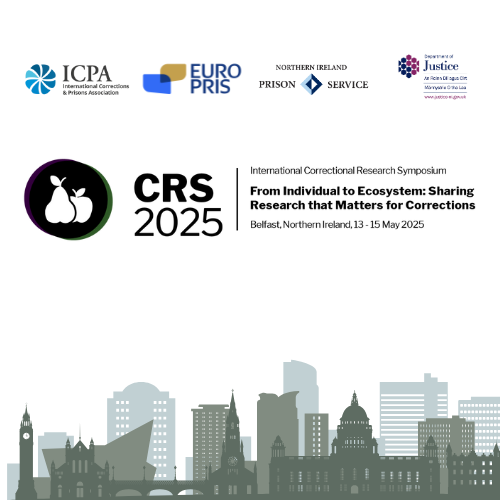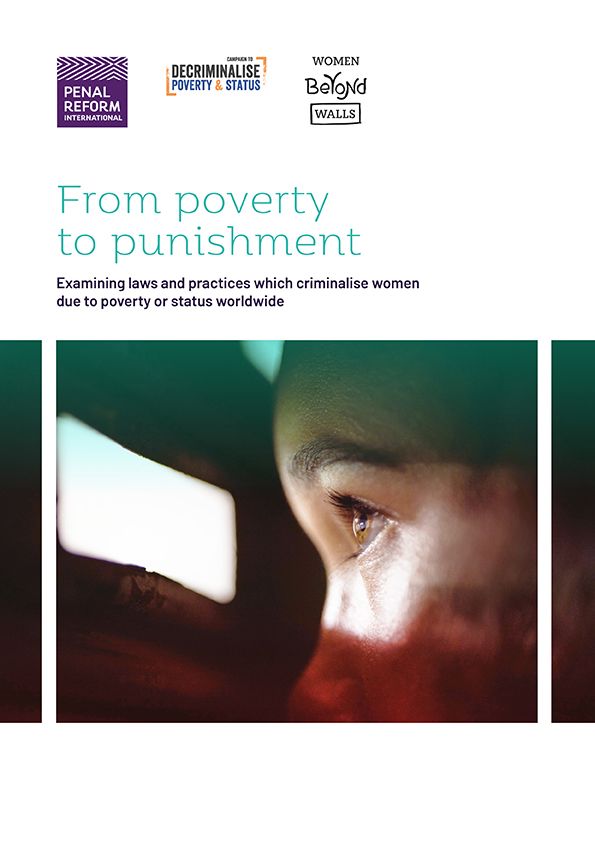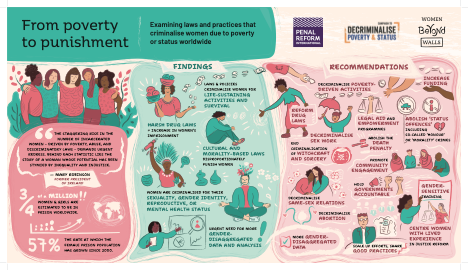
IACFP
IACFP Sponsors Correctional Research Symposium 2025

IACFP is committed to advancing the voice of psychology in corrections. The Correctional Research Symposium 2025 offers us the opportunity to spotlight our strategic pillar of “Research to Practice & Practice to Research,” which is why we are pleased to support sponsors International Corrections and Prison Association (ICPA) and the European Organisation for Prison and Correctional Services (EuroPris) and host the Northern Ireland Prison Service (NIPS) in delivering this important event. For more information on CRS 2025, go to ICPA's website or EuroPris’ website.
“What happens to imprisonment rates when a progressive prosecutor is elected: Quasi-experimental evidence from Cook County”
Recently published in Punishment and Society, 2025, Vol. 27(2) 315–337, this article summarizes the progressive prosecutor movement as often including an acknowledgement of the harms of primarily punitive approaches while also recognizing that these approaches may be ineffective at promoting safety and justice. The authors are Aaron Gottlieb and Matt Epperson from Crown Family School of Social Work, Policy, and Practice, University of Chicago; Laura Giugno from the University of Chicago; and Hye-Min Jung from Columbia University. Dr. Epperson is a member of the IACFP board.
Progressive prosecutors are viewed as centering criminal legal reform as a means to uphold public safety by “pledging to use their power to reduce the use of incarceration and to make the criminal legal system fairer and more equitable.” The findings of this research suggest that the 2016 election of Kim Foxx in Cook County, Illinois led to a reduction in the imprisonment rate overall but that substantial racial disparities in imprisonment persisted throughout her tenure. The thought-provoking discussion in this article about the findings and the implications of those findings also offer additional reforms that may be necessary to make a legal system fairer and more equitable – and the same reforms may be necessary in risk assessments as well.
What’s in a name?
Do you refer to our organization as the International Association for Correctional and Forensic Psychology or simply as IACFP? Either way, keep your eyes open for the release of our new logomark on 12th May 2025.
Research

“From poverty to punishment: Examining laws and practices which criminalise women due to poverty or status worldwide”
In March 2025, Penal Reform International (PRI), Women Beyond Walls, and Global Campaign to Decriminalise Poverty and Status published a new report: “From poverty to punishment: Examining laws and practices which criminalise women due to poverty or status worldwide”.
The report notes that “The number of women going to prison is growing at a faster rate than that of men.” It examines the factors that are driving this and makes recommendations for action.
The report calls for urgent reforms to stop the criminalisation of women for poverty, survival strategies and gendered norms.

Criminological Highlights
Criminological Highlights, published by the University of Toronto, Centre for Criminology and Sociolegal Studies, is available here.
The January 2025 issue of Criminological Highlights, Vol 22, No. 1, addresses the following questions:
- Why do risk assessments discriminate against Indigenous and Black prisoners?
- How do the economic conditions of a community affect prisoners released from prison into that community?
- Can Black police officers reduce aggressive policing by White officers?
- How can police training improve the quality of police-citizen interactions?
- How do prosecutors go about making decisions on the charging of accused people?
- How can general deterrence be integrated effectively into criminal justice policy?
- Why are unreasonable conditions of release imposed in bail courts?
- How do criminal justice systems punish people without first ensuring they have committed an offence?
One of the most interesting summaries is in response to the first question. Its conclusion is as follows:
“This paper finds “important racial and gender disparities in risk assessment scores assigned to federally incarcerated individuals in Canada and evidence of racial bias in how those scores affect the decisions made by carceral personnel” (p. 17). Risk assessments that are used to determine a prisoner’s institutional security level reflect, in part, differences in the social situations in which people lived prior to being convicted. In other words, these measures reflect Canadian society’s differential treatment of Black and Indigenous peoples in addition to differences over which the individual prisoner had control. Furthermore, “reintegration potential scores capture most of the information that should inform parole decisions and, once taken into account, there should be little [systematic] variation by race. However, the data show that among men who receive the least restrictive reintegration scores, Black and Indigenous men are 11 percentage points less likely to be on parole, once eligible, compared to white men” (p. 21). Overall, the findings suggest that the effects of differential treatment by race and gender in our communities are replicated and extended in Canada’s penitentiary system such that critical decisions, like release on parole, are affected by race and gender even when reintegration potential and age are held constant.”
Reference: O’Connell, Siobhan and Ayobami Laniyonu (2025). Race, Gender, and Risk Assessments in Canadian Federal Prison. Race and Justice (in press).
Upcoming Conferences

The 2025 IAFHMS in-person conference will be held at Trinity College, Dublin, Ireland from June 24 to 26, 2025, with post-conference workshops held on June 27, 2025. Conference registration includes catered lunch on June 25 and June 26, daily coffee breaks, and a welcome reception on the first evening.
For more information go to https://iafmhs.wildapricot.org/2025-registration.
Correctional Mental Health Care Conference, July 20 @ 8:00 am-July 21 @ 5:00 pm

Two days of updates and best practices for correctional mental health care issues: juvenile, substance abuse, suicide prevention, trauma, self-care, and more. Plus the opportunity to take the CCHP and specialty exams on-site. Join us in San Francisco for a focused event for mental health leaders, clinicians, and administrators.


